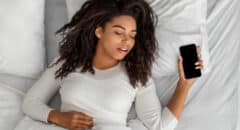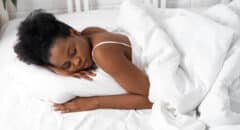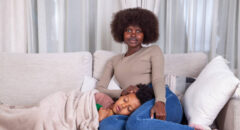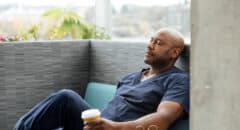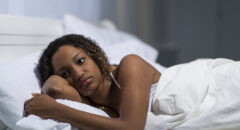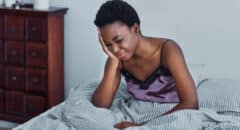
Insomnia is widespread in heart disease patients and significantly boosts the risk of heart attack, stroke or another major heart event, a new study says. Research shows that Blacks are more likely to have very short sleep or short sleep, compared with their white counterparts.
The findings show the need to check for and treat sleep problems in heart disease patients, according to researchers.
"Our study indicates that insomnia is common in heart disease patients and is linked with subsequent cardiovascular problems regardless of risk factors, coexisting health conditions and symptoms of mental health," says lead author Lars Frojd, a medical student at the University of Oslo in Norway.
RELATED: Signs That Heart Failure Is Ruining A Good Night’s Sleep
How insomnia affects your health
The new study included more than 1,000 heart disease patients (average age: 62). They participated for an average 16 months after a heart attack and/or a procedure to open blocked arteries -- either bypass surgery or stent implantation.
At the start, 45% said they had insomnia and 24% said had used sleep medication in the previous week.
During an average 4.2-year follow-up, 225 patients had 364 major heart events. They included hospitalization for heart attack, restoring blocked blood flow, stroke, heart failure and cardiovascular death.
Over time insomnia can lead to unhealthy habits that can hurt your heart, including higher stress levels, less motivation to be physically active, and unhealthy food choices, the CDC notes. Insomnia, accounted for 16% of repeat heart events, ranking it third in importance after smoking (27%) and inactivity (21%), according to findings presented Thursday at a virtual meeting of the European Society of Cardiology. The study was also published in the journal Sleep Advances.
"This means that 16% of recurrent major adverse cardiovascular events might have been avoided if none of the participants had insomnia," Frojd said in a meeting news release.
RELATED: What is the ‘Best Bedtime’ for Your Heart?
How to get a good night's sleep
Fortunately, there are several sleep devices available that can help you get a good night's sleep if you suffer from insomnia. If you're thinking about getting a device to help you sleep better, an expert offers some advice.
Sleep-tracking devices range from those that record how much you sleep to those that monitor your sleep stages, but it can be difficult to know if they'll provide good results and useful information.
"Because these devices record wake and sleep based on movement, if you are generally someone who doesn't move around very much during sleep and moves around a lot during wake time, then you're more likely to get an accurate recording of your sleep amounts wearing one of these devices," says Dr. Philip Alapat. He is an assistant professor of sleep medicine at Baylor College of Medicine in Houston.
Other sleep devices that have been shown to benefit patients include:
- White-noise machines to provide consistent sound that blocks background noise.
- Alarms that gradually increase light in the room to help you wake up naturally.
- Weighted blankets, which have been reported to help alleviate abnormal sensations in the limbs for people with restless legs syndrome.
Alapat also outlines measures you can take to improve your chances of a good night's sleep: reduce light in the room while getting ready for bed; turn off the television and computer, and put your phone away; maintain a calm, cool and quiet environment to help you relax.
"Those of us who do have trouble falling asleep need things to help us relax more before bedtime," Alapat said in a Baylor news release. "It can be hard to shut the brain off. Anything that can help you disconnect from work and other responsibilities keeping your brain occupied can help you with your sleep quality."
If you still have trouble sleeping, see a sleep medicine expert, Alapat recommends. They may provide a home sleep test to determine if you have difficulty breathing while sleeping, or you may require an in-lab sleep study where sleep experts measure your brain waves using EEG recordings.



